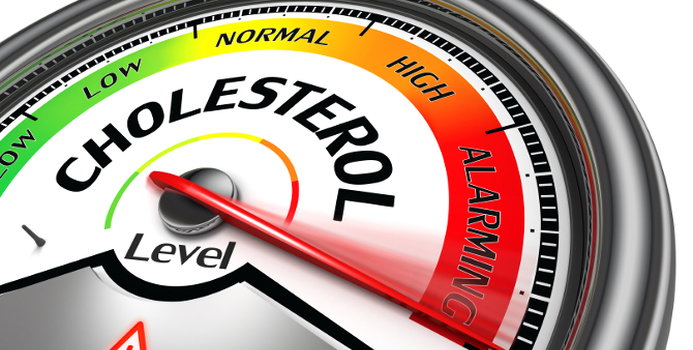High lipid and cholesterol levels are one of many potential contributors to an increased risk of coronary artery disease (heart disease), heart attacks and other health issues. With heart disease on the rise, it is important to understand how to best control your lipid/cholesterol levels.
What Is Cholesterol?
Cholesterol is a fat-like substance made by your liver; its main function is to make some of your hormones, vitamin D, and the substances that help you to digest food. While your body naturally makes all of the cholesterol that it needs, it can be found in many of the foods we eat (like eggs and red meat).
There are two different types of cholesterol - low-density lipoproteins (known as LDL) and high-density lipoproteins (HDL). Lipoproteins are composed of both fat and protein made by your body. These proteins deliver other fats through your bloodstream and to your cells. LDL is generally known as the "bad" form of cholesterol, carrying the most of the substance into the blood. Too much LDL can combine with other substances to form plaque that sticks to the walls of our arteries. This build-up can eventually lead to a heart attack or stroke by reducing blood flow to the heart. Therefore, it is important to keep LDL levels low. In contrast, HDL, the "good" cholesterol, carries roughly one-fourth to one-third of the cholesterol in the blood. Research has shown that HDL may also remove some of the cholesterol that is deposited in your arteries, further reducing build-up.
Here are some tips to keep your lipid and cholesterol levels in check:
1. Avoid Saturated & Trans Fat
Researchers have established three ranges for total cholesterol levels - less than 200 mg/dL is desirable, 200 to 239 mg/dL is borderline high, and 40 mg/dL and above is high. In order to keep your cholesterol levels balanced, incoporate foods low in saturated and trans fats into your diet. Eating foods high in saturated fat causes your liver to pump out much more cholesterol into your bloodstream than your body needs. This excess cholesterol is what builds up on artery walls, blocking bloodflow and potentially leading to a heart attack or stroke.
Trans fat is even worse, both raising your LDL and lowering your HDL. These fats are so bad for you, the U.S. passed the trans fat labeling law in January 2006. However, if a serving contains less than half a gram of trans fat, companies are permitted to represent it as zero. A good way to ensure a product has no trans fat is to check the ingredients list - if you see the words "partially hydrogenated," there are trans fats. Always check labels before buying.
2. Exercise
Another key to avoiding high lipid/cholesterol levels is to exercise. Working out can lower LDL cholesterol levels in several ways. The first is by significantly reducing triglycerides; this decreases the number of triglyceride-rich particles that can promote the growth of fat deposits on artierial walls. Another way exercise reduces cholesterol is by stimulating enzymes within the muscles and liver, which can actually convert bad cholesterol to good cholesterol.
3. Don't Smoke
Smoking is another big contributor to raising LDL and lowering HDL. Smoking increases blood clotting; if a blood clot forms near heavy plaque on artery walls, the reduced bloodflow can lead to a heart attack or stroke.
4. Keep Your Weight Under Control
Weight management is also a vital part of keeping your cholesterol levels down. Choosing the aforementioned foods low in saturated and trans fat is an excellent start. However, it isn't solely about what you don't eat. Planning meals ahead of time is a great way to ensure you're incorporating healthy foods into your diet that will aid in keeping your levels in check. Choose whole grains (like whole-grain breads, pastas, and cereals), heart-healthy fish (like salmon or light tuna), and plenty of fresh fruits and vegetables.
Implementing these preventative strategies to lower your total cholesterol will ensure you live the longest, healthiest life possible!



